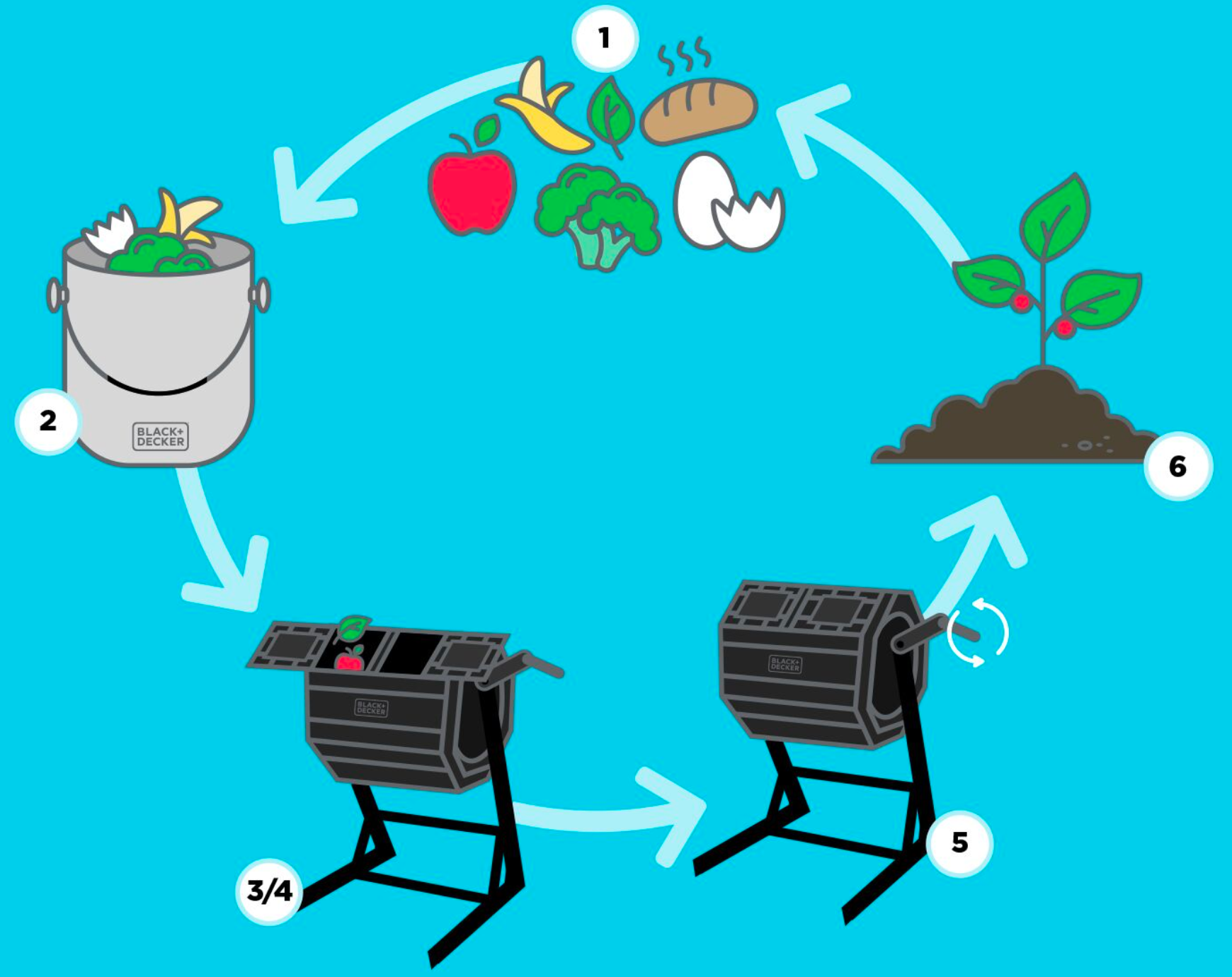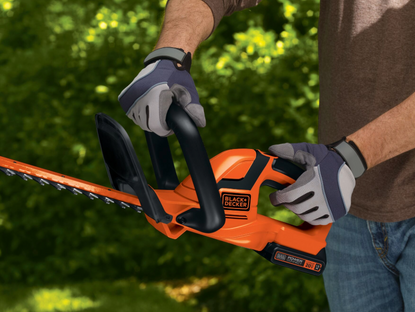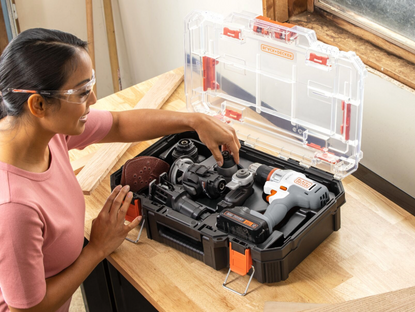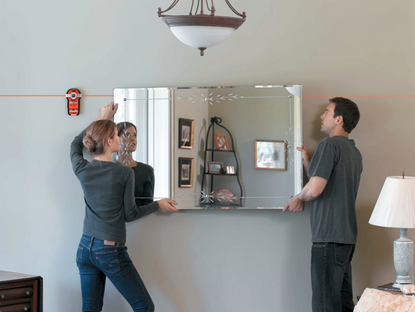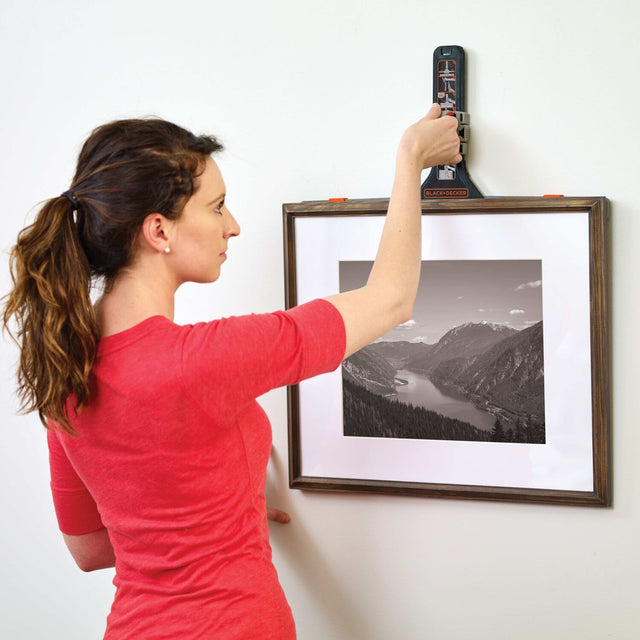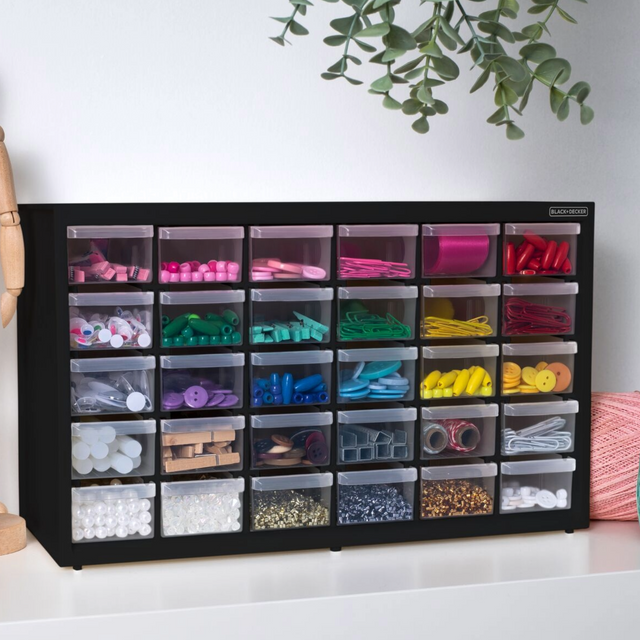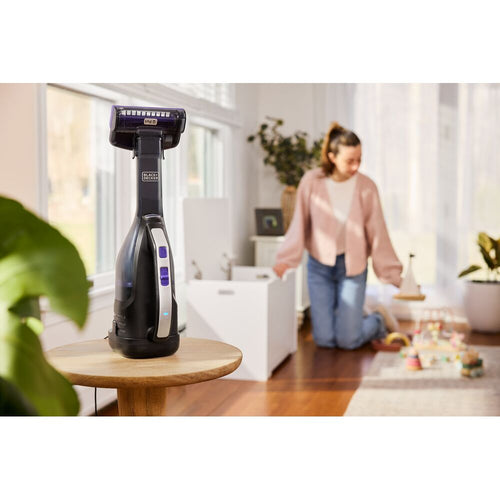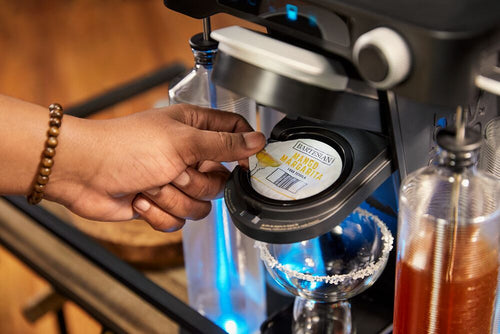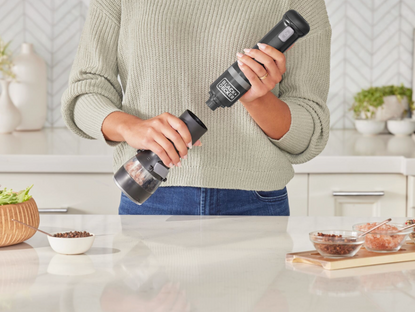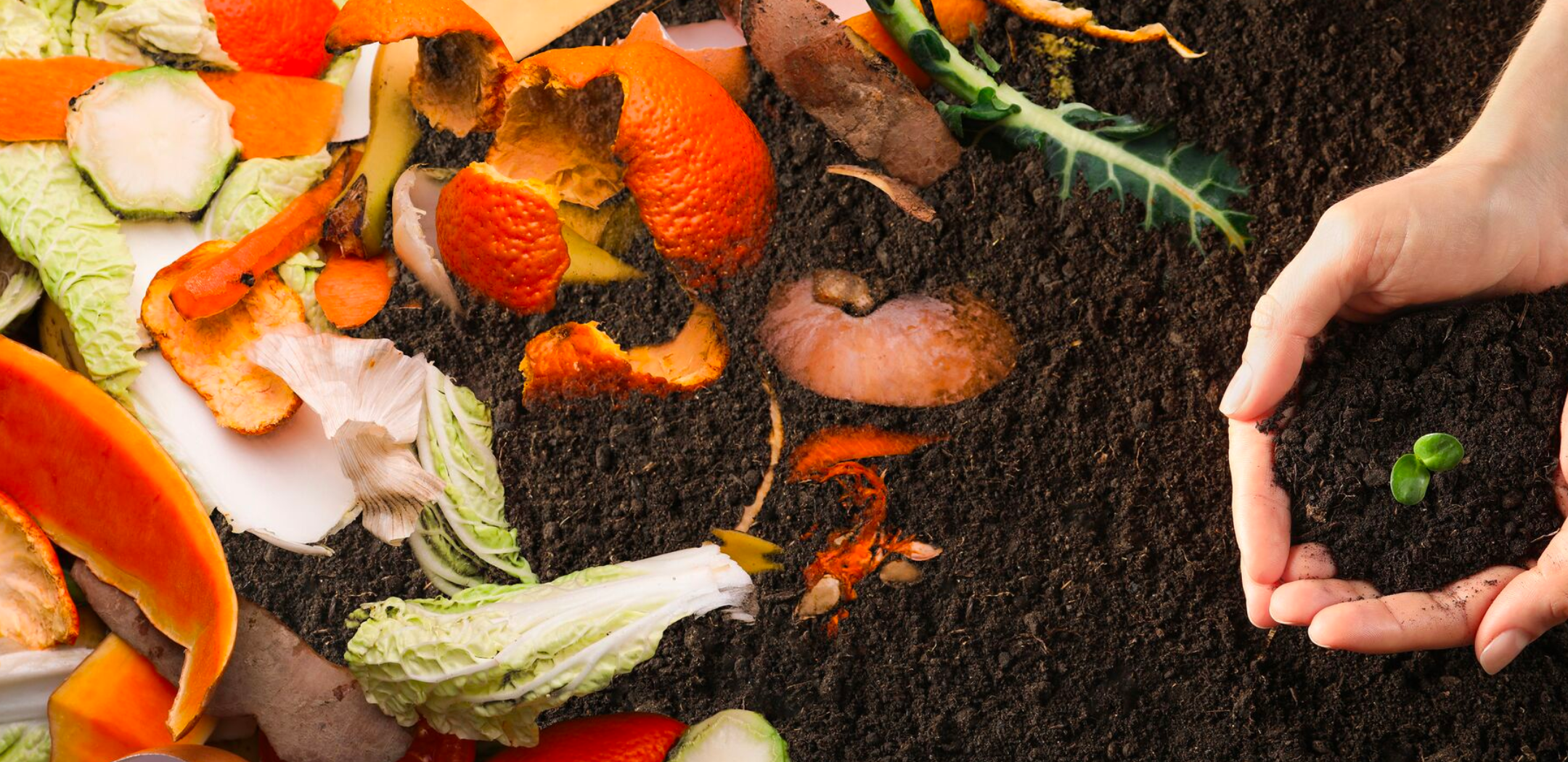Composting
Small actions can make a big impact.
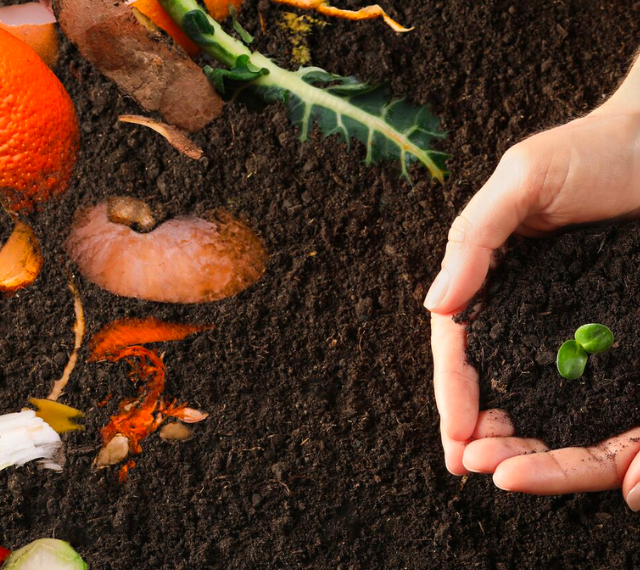

What is composting?
Composting is the natural process of recycling organic matter, such as leaves and food scraps, into fertilizer for plants. Anything that grows decomposes eventually. Composting speeds up the process by providing an ideal environment for bacteria, fungi, and other decomposing organisms to do their work. The resulting decomposed matter is called compost.
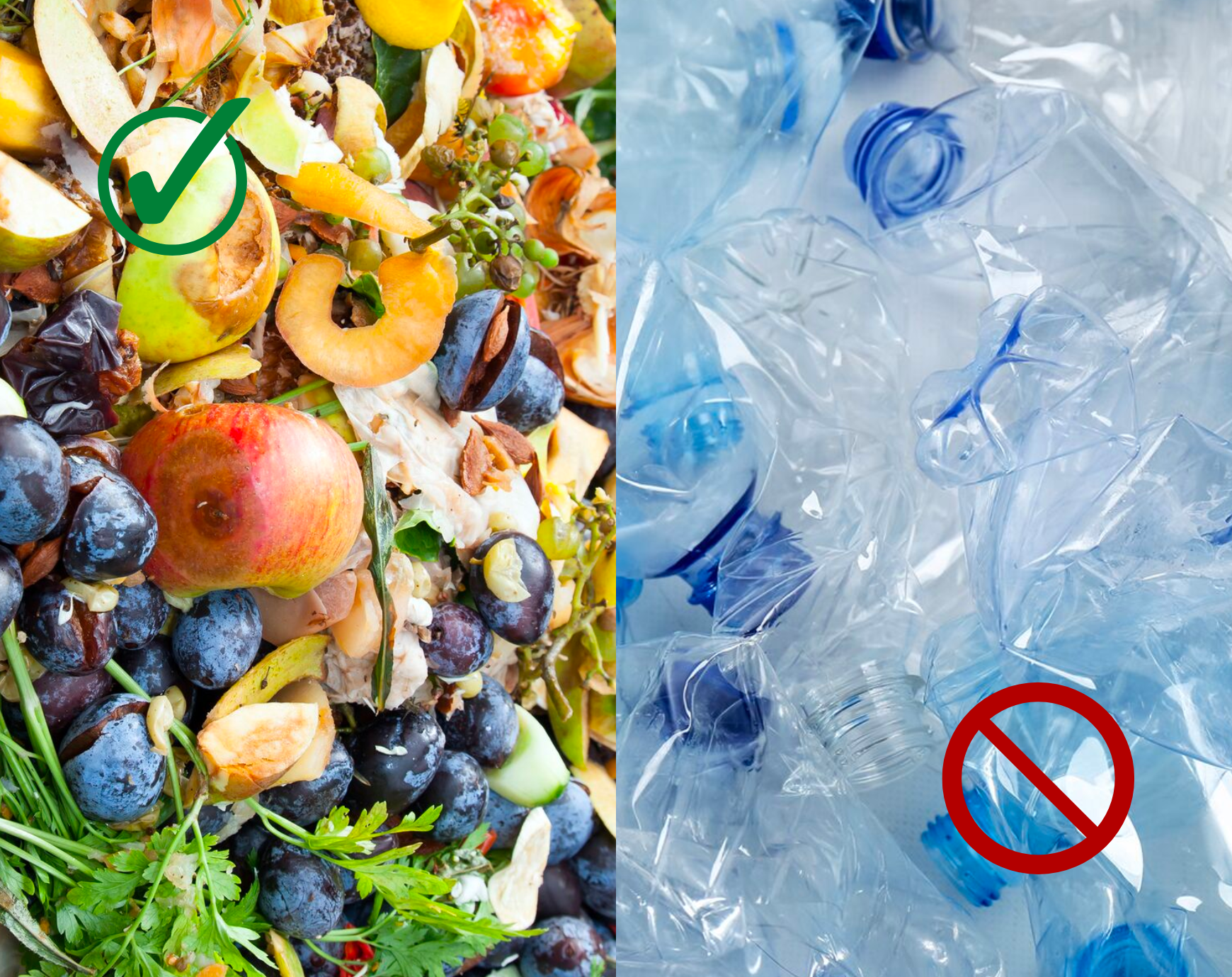
What to compost
Browns:
- Hay and straw
- Dead leaves
- Sawdust
- Shredded black and white newspaper
- Hair and fur (no chemicals or dyes)
- Non-glossy paper and envelopes
- Cardboard
- Shredded 100% cotton materials
- Dust Bunnies
Greens:
- Fruit and vegetable scraps
- Coffee grounds
- Grass clippings
- Eggshells
- Tea leaves and tea bags
- Stale bread
- Cooked pasta and rice
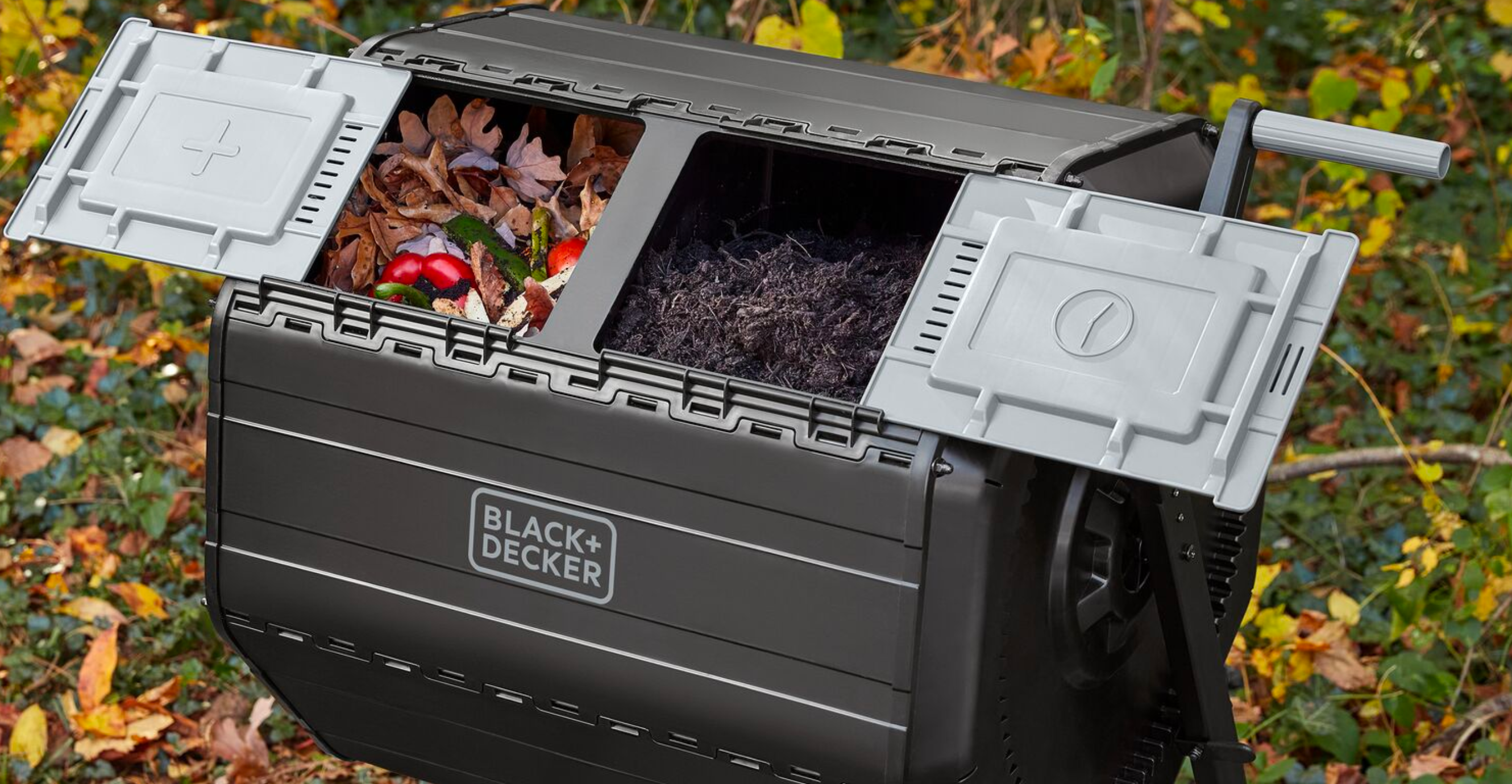
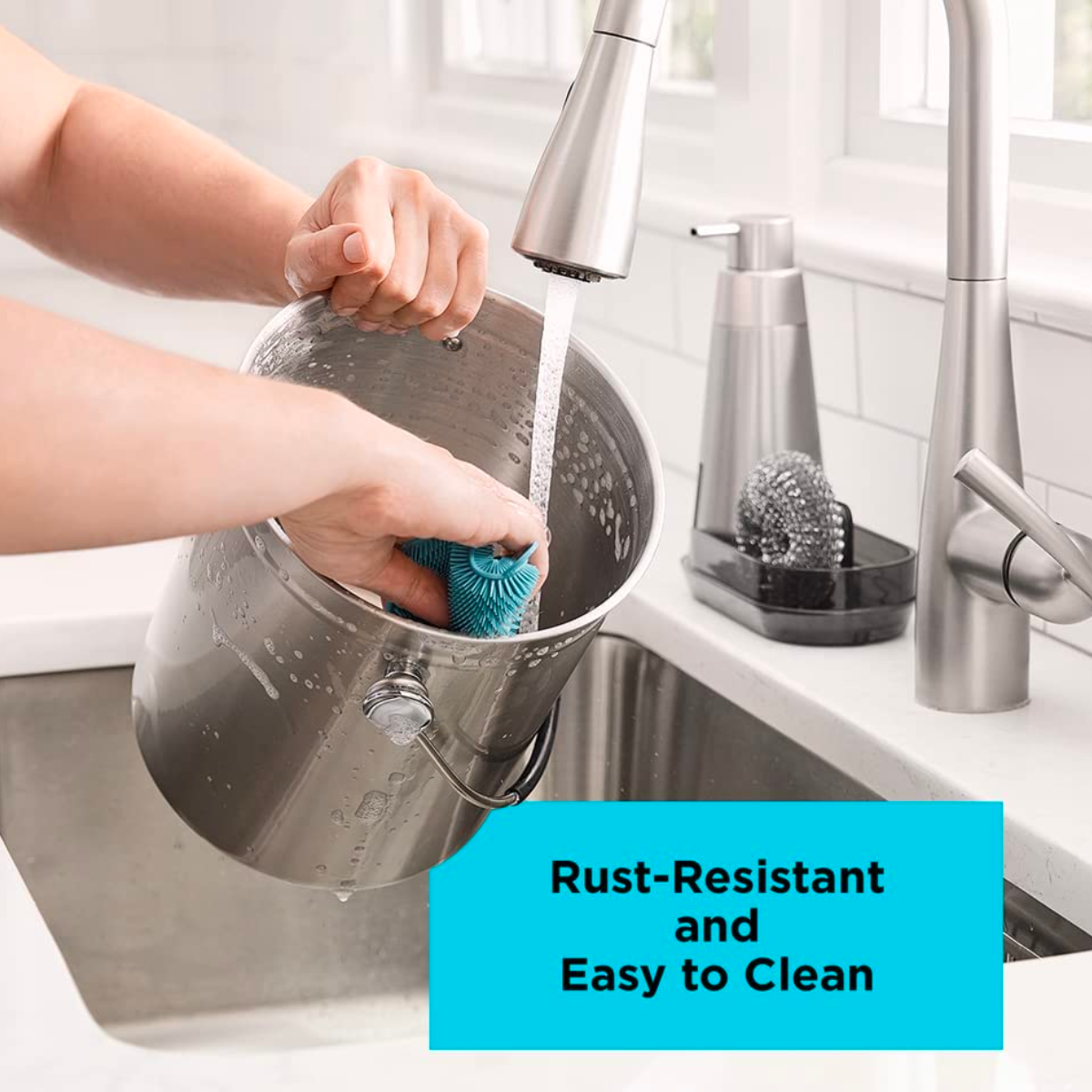
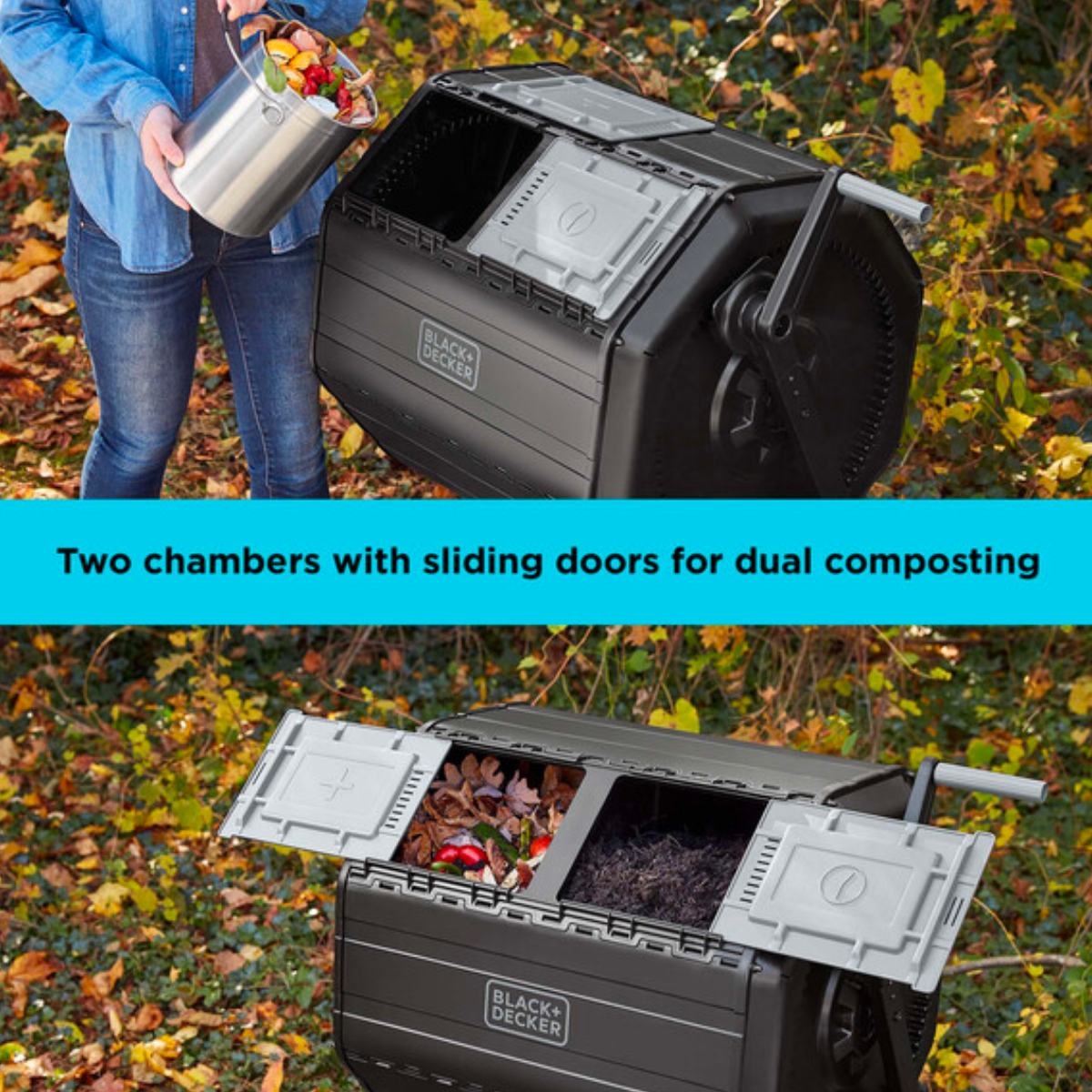
How to compost
- Select your food scraps.
- Store the food scraps in your BLACK+DECKER® Countertop Compost Bin.
- Choose a place to make your compost - outdoor compost, community garden, etc.
- Make the compost mix - "Green and Browns" - layer greens and browns starting with the browns to allow for aeration. The number of layers depends on your space and amount of food scraps. Keep the layers to an inch or two. You can put a little bit of browns on the top to keep away flies and odors. (Remember 2:1 brown to green ratio). Turn the compost to mix thoroughly.
- Maintain the compost - Check that the compost is slightly damp and add water when needed. Turn the compost 5-10 rotations at least 2-3 times a week.
- Removing the compost - the compost is done when it's dark and crumbly with an earthy smell. Empty the composter into a bucket, wheelbarrow, or tarp, and use in your garden.
